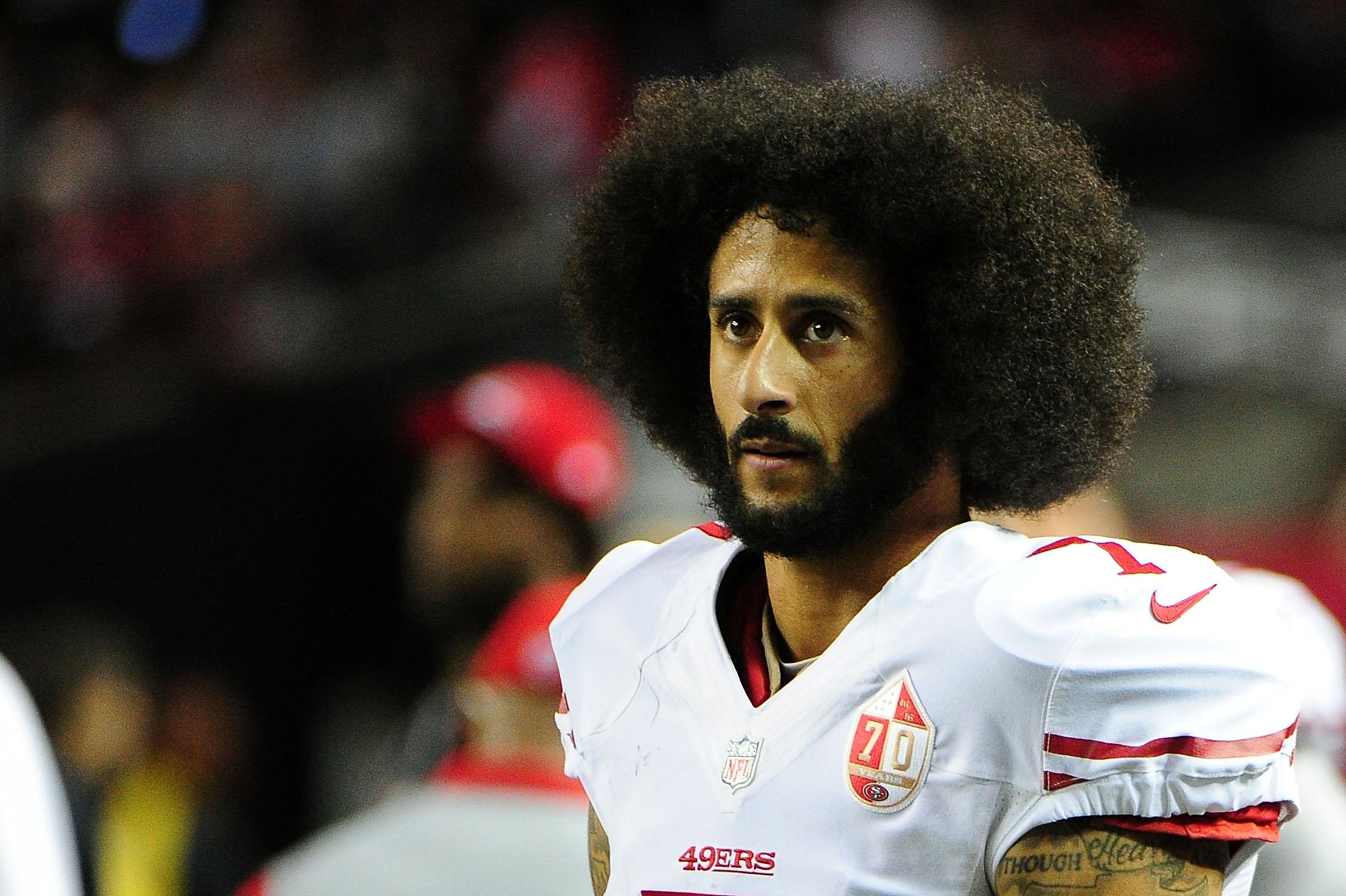
Colin Kaepernick and Eric Reid have withdrawn their collusion grievances against the NFL for the league’s response to their 2016 protests during the national anthem, Yahoo’s Charles Robinson reported Friday. The NFL released a statement confirming the news, writing that “the parties have decided to resolve the pending grievances.”
The players’ lawyer, Mark Geragos, tweeted a statement saying that the matter had been resolved and there would be no further comments from either party because of a confidentiality agreement. The terms of the settlement and the evidence presented in the case have not been made public.
It’s a surprisingly swift conclusion to what had been one of the most polarizing intersections of sports, race, and politics in the 21st century, as Kaepernick and Reid joined a long history of black athletes risking their careers to protest racial inequality in the United States. Beginning in August 2016, then–San Francisco 49ers Kaepernick and Reid knelt during the national anthem before games to protest racial injustice and police brutality. Kaepernick went unsigned when he became a free agent in March 2017, and he filed a grievance in October of that year. He is still a free agent. Reid went unsigned when he became a free agent in March 2018, and he filed a collusion grievance in May, which he did not withdraw after signing with the Panthers in mid-September.
The players’ grievances, which were labor disputes subject to the NFL’s collective bargaining agreement, rather than lawsuits filed into the court system, were subject to an arbitration process. Reid’s collusion case against the league was pending when news of Friday’s settlement broke, though an arbitrator denied a separate claim in 2018 against the Cincinnati Bengals—the lone team to show interest in Reid last offseason—for asking him about his protest plans as a condition of employment. Kaepernick’s collusion case, which was heard by arbitrator and Penn Law professor Stephen Burbank, was placed under a gag order that prevented either party from revealing details of the case. The hearings were not public. In August, Burbank denied the NFL’s request to dismiss the case. The settlement reportedly came before the final evidence was to be presented to the arbitrator later this month, Robinson reported.
Kaepernick’s legal team reportedly deposed many powerful NFL figures, including Dallas’s Jerry Jones, New England’s Robert Kraft, Houston owner Bob McNair before he died in November 2018, Denver president of football operations John Elway, Seattle head coach Pete Carroll and GM John Schneider, and Baltimore head coach John Harbaugh and then-GM Ozzie Newsome. Kaepernick’s legal team also reportedly wanted to depose John Schnatter, the founder of Papa John’s; Jane Skinner Goodell, the wife of NFL commissioner Roger Goodell; and President Donald Trump, though it is unclear whether it did. The settlement means the emails, text messages, and statements that were evidence in the case will likely remain private. If Kaepernick had taken his case to court, the evidence may have become public record.
Proving collusion would have required Kaepernick to go beyond showing that teams refused to sign him because of his political stances and protests—that rationale is allowed under the CBA as long as teams come to that conclusion individually. Kaepernick would have to prove some franchises worked together to keep him off their rosters. Per the CBA (page 119 here), the league’s rules against collusion state:
No Club, its employees or agents shall enter into any agreement, express or implied, with the NFL or any other Club, its employees or agents to restrict or limit individual Club decision-making as follows:
(i) whether to negotiate or not to negotiate with any player;
(ii) whether to submit or not to submit an Offer Sheet to any Restricted Free Agent;
(iii) whether to offer or not to offer a Player Contract to any player;
(iv) whether to exercise or not to exercise a Right of First Refusal; or
(v) concerning the terms or conditions of employment offered to any player for inclusion, or included, in a Player Contract.
Shortly after the news broke, Kaepernick and Reid retweeted Geragos’s statement. The NFLPA, which did not directly represent Kaepernick or Reid in their cases, stated its support for both players but noted that it did not know the terms of the settlement.
The settlement was announced four days after Reid signed a three-year contract extension with the Panthers worth as much as $22 million and with $10 million guaranteed. Throughout the 2018 season, Reid implied publicly that he was targeted by league drug testers, who are supposed to choose players randomly.

